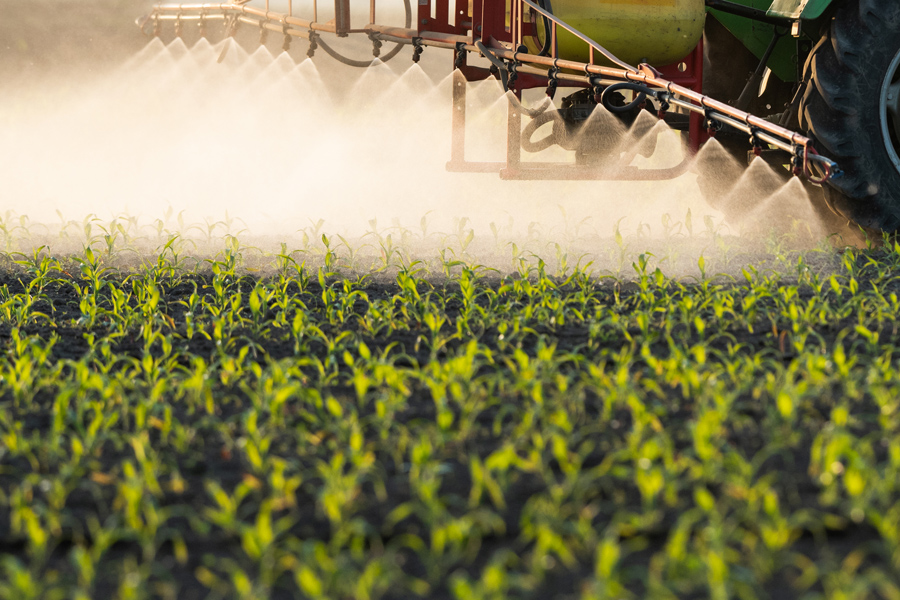Amid news of a still sputtering U.S. economic recovery, a report released this week shows the nation’s agbioscience industries are growing, especially in the South.
According to the Battelle study, “Impact and Innovation: Agbioscience in the Southern United States,” agriculture, forestry, and fisheries production generates $240 billion in regional economic activity within the Southern region and supports over 2.2 million jobs with labor income totaling $62 billion.
Agbioscience encompasses a broad continuum of development, production and value-added use of plants and animals for food, health, fuel and industrial applications. The study’s findings show that agbioscience, its value-chain in production and the downstream industrial activity are vital to the country’s sustainable global and domestic economic future. The Southern region helps drive that activity.
In addition, the downstream processing of agriculture, forestry and fisheries output into value-added food and industrial products adds an additional $1 trillion in output across the Southern region’s economy and almost 4.6 million jobs with labor income totaling over $200 billion.
“The current and future importance of the agbiosciences is hard to overstate,” said Simon Tripp, a co-author of the report. “For instance, this science and industry sector is fundamental to the survival of the world’s expanding population, the food security of our nation, and the health of our population.”
The dean of the University of Georgia’s agricultural college credits land-grant research for pushing the industry ahead.
“Agriculture is the foundation of our economy in Georgia,” said J. Scott Angle, dean and director of the UGA College of Agricultural and Environmental Sciences. “The innovation and education from our college has helped put the industry on a positive trajectory to become one of the leading food and fiber producers in the world.”
Georgia’s total food and fiber sector employs 688,586 Georgia workers and has annual sales of nearly $107 billion, over $12 billion at the farm level. Food and fiber supplies more than 13 percent of the total employment in the economy and over 11 percent of the value-added business.
UGA is most noted across the region and the nation as a leader in crop genetics, variety development, food safety and cutting-edged animal research.
“Innovations from our college enhance the state’s ability to attract new, lucrative biotech firms to the state while continuing to support the vital agriculture industry that grows jobs and revenue at all levels of the economy,” Angle said. “Agriculture is one of the most stable industries in any economic environment.”
The industry’s tremendous economic impact across the Southern region is due in large part to the modern science and technology innovations from the Land-grant University Cooperative Extension Service and Agricultural Experiment Station System. The system successfully addresses agriculture’s crucial national and global needs through research and development, practice improvement, skills enhancement, and new technology introduction, dissemination, and adoption, the Battelle report shows.
“The findings from this study underscore agbioscience’s potential in the Southern region, said Saied Mostaghimi, director of Virginia Agricultural Experiment Station and associate dean for research and graduate studies at Virginia Tech, and this year’s leader of the region’s research association.
“By utilizing the research and development power of our land-grant universities, we can develop the knowledge and appropriate technologies to further increase agriculture and forestry production for food, fiber, and fuel, while improving food safety and nutrition, enhancing environmental stewardship, and promoting economic development,” he said.
The study notes the Land-grant University Extension Service and Experiment Station System is on the frontline of sustaining and securing U.S. competitiveness in what is, and will continue to be, a sector of core strategic importance for the country.
This U.S. system of research and extension provides science and technology development and transformational education that keep Southern Region agriculture, agribusiness, and associated business sectors at the forefront of innovation, productivity and competitiveness. These advancements create and sustain jobs and contribute to a strong regional, national and global economy.
“Throughout our hundred-year history, Cooperative Extension has set the pace of change in agriculture, natural resources and rural America. In today’s fast-changing world, we must provide the best decision-making tools and Extension education possible to farmers, ranchers, families and communities,” said Beverly Sparks, UGA’s associate dean for Extension and leader of the region’s extension directors this year. “It is imperative the Southern region be well-prepared to take advantage of the tremendous potential we have before us.”
Sustaining the Extension Service and Experiment Station System, further investing in it, and addressing its challenges are keys to maintaining the strength of the economic and social fabric of the nation, the region and the state. (Who said this?)
“The Southern Region’s Extension Service and Experiment Station System represents a uniquely powerful resource,” said Deborah Cummings, a co-author of the report.
“In recognition of this importance, the system is traditionally supported by federal, state, and local governments, and by industry, producers, commodity organizations, and other key stakeholders. This support must not only be sustained, but ideally—given the size and scope of grand domestic and global challenges addressed by the agbiosciences—should be significantly expanded so that the Southern Region can take advantage of the large-scale opportunities presented,” she said.
Over the past four years, UGA CAES has sustained cuts from the state budget totally well over 20 percent and the pending federal cuts will take more from the college’s resources.
“In our science and technology-based economic development practice at Battelle, we have observed the consistent rise of agbioscience as a core driver of economic growth and business expansion opportunities for the U.S.,” co-author Tripp said. “This is an extremely dynamic sector, leveraging sustainable biobased resources to produce goods that meet large-scale market needs. The Southern Region is a global leader in traditional agricultural economic activity, and can count itself as one of a select few regions in the world that is also leading the charge in emerging areas of the modern bioeconomy.”
The full report is available online at: www.LSUAgCenter.com/SouthernAgbioscienceImpact




